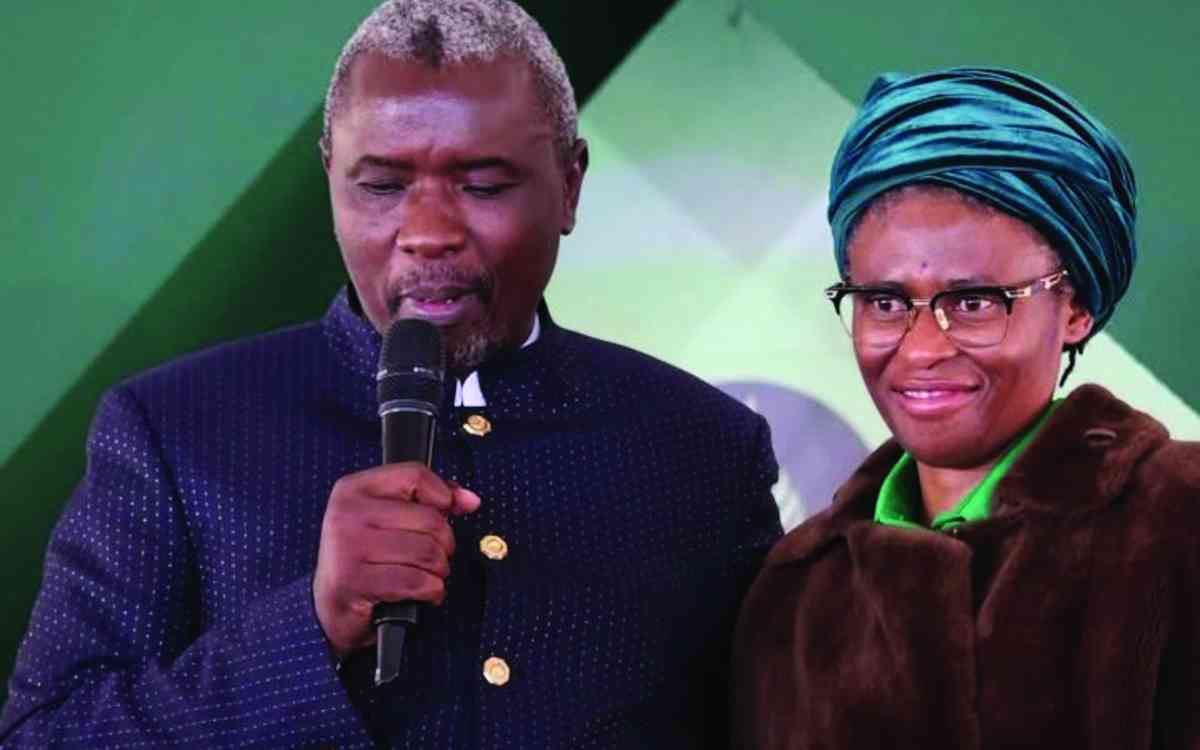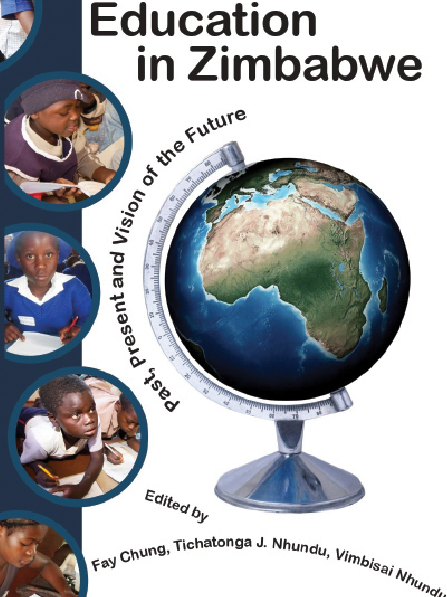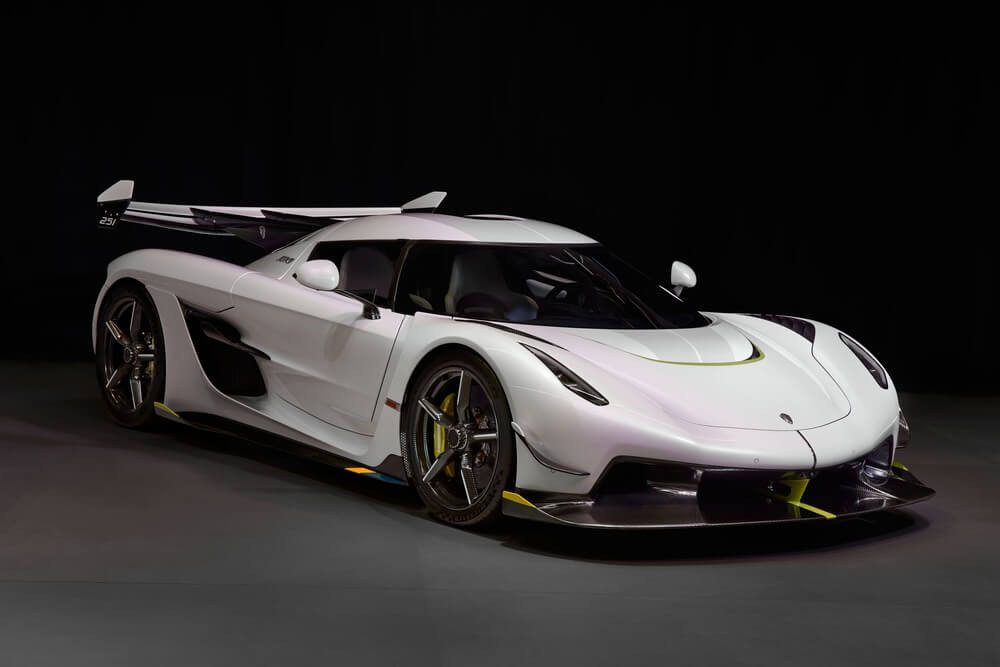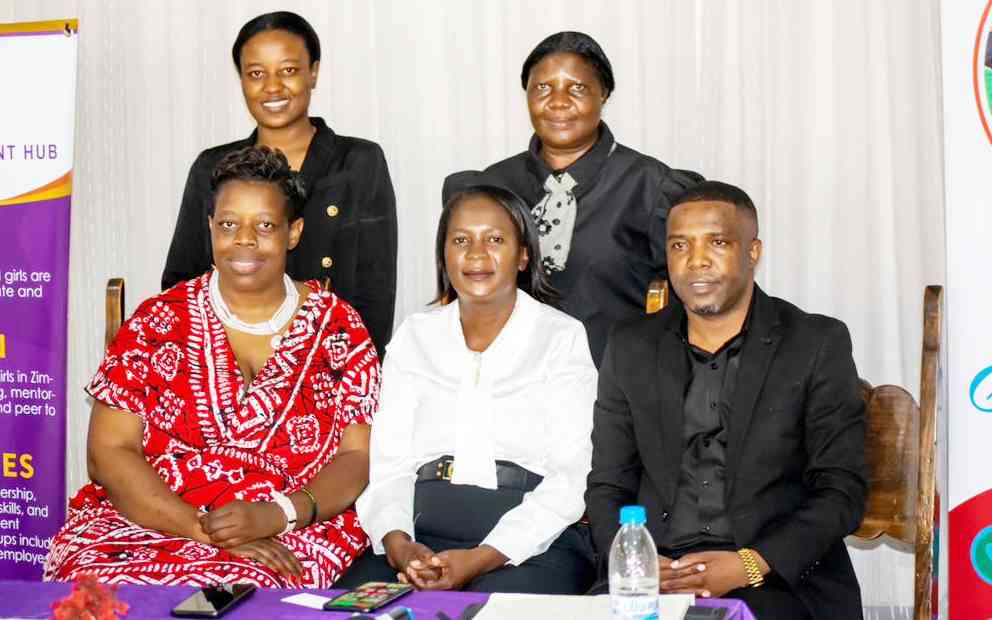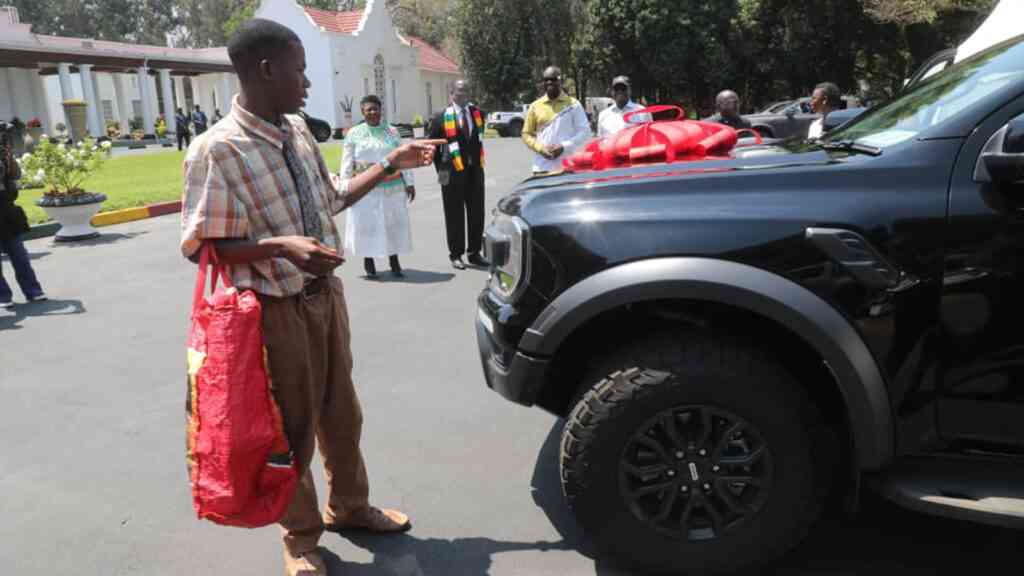
In recent months, Zimbabwe’s arts scene has been abuzz — not with new music, films or theatre, but with the spectacle of car keys changing hands.
From luxury SUVs to sleek sedans, controversial businessman Wicknell Chivayo and, more recently, President Emmerson Mnangagwa have been handing out vehicles and cash to a long list of artists, musicians and social media personalities.
Comedian Comic Elder has become the latest beneficiary, receiving a brand-new Ford Raptor valued at around US$115 000 from Mnangagwa last weekend.
The gesture was further augmented by Chivayo, who reportedly added US$150 000 to help the entertainer purchase a house.
As the goodwill poured in, Harare City Parking also extended a courtesy offer granting Comic Elder free parking, while Pacific Medical Centre pledged to provide the comedian and his family with free medical care for the next 10 years.
The string of donations has reignited conversations around state and corporate patronage in the arts, with some praising the recognition of local talent while others call for structural support for the creative industry to ensure sustainability beyond one-off rewards.
While this wave of generosity has been framed as “empowering creatives,” it has ignited deep debate about what it truly represents for Zimbabwe’s arts sector — a long-overdue appreciation of talent, or a calculated political performance.
At first glance, the gifting of vehicles to artists like Jah Prayzah, DJ Fantan, Mechanic Manyeruke, and Dorcas Moyo appears benevolent — a long-overdue nod to their cultural contributions.
- Mr President, you missed the opportunity to be the veritable voice of conscience
- ED to commission new-look border post
- Zanu PF ready for congress
- EU slams Zim over delayed reforms
Keep Reading
Zimbabwe’s creatives, after all, operate in an economy that offers little support: poor royalties, piracy, and limited performance venues have left many struggling.
Yet critics argue that these gifts are not random acts of kindness, but tools of political patronage.
By rewarding influential cultural figures — many with massive youth followings — power brokers can subtly shape public sentiment ahead of the 2028 elections and the government’s much-touted “Vision 2030” agenda.
Arts critic and University of Zimbabwe lecturer Fred Zindi sees the pattern as not arts development, but political choreography.
“The idea is that musicians are the best people to influence the public,” he said.
“This is why Jah Prayzah and wife have been given three cars.
“This is not good for the arts industry. If the motive was to help artistes, they would help people like disabled Tongai Gwaze, aka Greatman or Patrick Mukwamba.
“There is a hidden agenda behind this generosity. Artists are being used as symbols of endorsement — to sanitise a political narrative under the guise of generosity.”
Instead of one-off donations, many argue the state and private sector should be fixing the economy and strengthening the creative industries ecosystem — so that artists can buy their own cars through sustainable income.
“We want to live in a country where an artist who works hard and has earned his acclaim, or any civil servant for that matter, can afford to buy their own car, pay for their own fuel and buy a house without needing to rely on handouts,” said lawyer and politician Fadzayi Mahere.
“No professional or artist should be at the mercy of any politician or the bogus, criminal tenderpreneur of the day to make it in Zimbabwe.”
Musician Cucsman chipped in and said: “These gifts of cars and cash to pastors, musicians and comedians aren’t acts of kindness, they're a political investment.”
“It’s a system called patronage politics, where the powerful use money to buy influence, silence criticism, and create the illusion of generosity while the majority suffer in poverty.”
Indeed, the contrast is stark. In countries with strong creative economies, artists thrive on royalties, tours, and endorsements — not political gifts.
Zimbabwe, however, continues to lag behind in implementing copyright reforms, digital streaming frameworks and fair performance contracts.
The involvement of respected gospel figures like Baba and Mai Charamba and Mechanic Manyeruke has also sparked moral debate.
Many question whether accepting gifts from a businessman with a controversial reputation aligns with their faith-based message.
Political analysts and arts critic Blessing Vava said the dependency culture risks hollowing out the industry’s independence.
He said the dishing out of cars and cash was a premeditated tactic by Mnangagwa.
“This is a calculated strategy by Mnangagwa using his proxies like Chivayo to buy the creative industry so that they are not critical of the government,” Vava said.
“Those dishing out cars and all these trinkets are aware of the influence that is held by these creatives and sports people and come election time they will be used to propagate messages for the regime
“They are taking advantage of the struggles of the creatives and they know they will not refuse to get these things to the extent that most of them are now openly begging on social media in a bootlicking spree never seen before.”
Vava said Thomas Mapfumo showed he stands with his principles and knows quite well that there was no free lunch in Africa.
“For Mukanya, taking such ‘gifts’ was an affront to everything he stood for in his six-decade music career,” he said.
A music promoter speaking on conditions of anonymity said when an artist’s success depends on who gives them a car, not who buys their music, they lose the essence of artistic integrity.
“The government should create policies that enable artists to earn — not wait for handouts,” he said.
Meanwhile, comedians and musicians now seem to compete for Chivayo’s attention — with some attending Zanu PF events, or openly praising the ruling party or the controversial businessman online.
This raises concerns about the erosion of creative independence and the rise of self-censorship among artists hoping to remain on the “gift list.”
Chivayo’s sudden largesse — cars worth millions of dollars, distributed in a struggling economy — has also raised suspicions.
“It’s legitimate to ask where the money is coming from,” said one economic analyst.
“This could be a soft-power project — a way to launder reputations or secure influence through culture.”
If the motive is image management rather than industry development, then Zimbabwe’s creative sector may be facing a dangerous precedent: a return to hegemonic patronage, where loyalty is rewarded over talent.
Zimbabwe’s artists deserve more than charity; they deserve structure. Investment in arts education, copyright enforcement, digital distribution, and transparent grants would empower creatives sustainably.
As a local arts journalist notes: “Real empowerment is when Jah Prayzah can buy his own fleet, not wait for someone to hand him one. Artists are entrepreneurs — they need markets, not miracles.”
Until then, the shiny SUVs will keep rolling — symbols not of progress, but of an industry still trapped in the politics of survival.
In the end, the car keys tell a bigger story: Zimbabwe’s arts sector doesn’t need gifts — it needs governance, growth, and genuine freedom to create without fear or favour.

